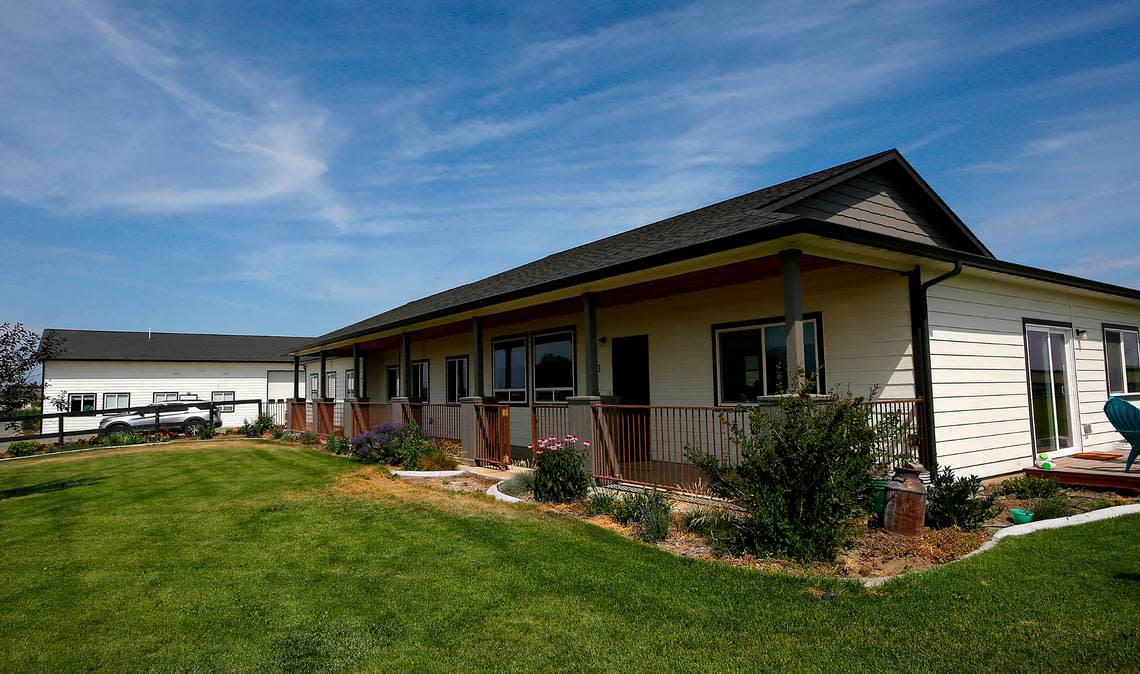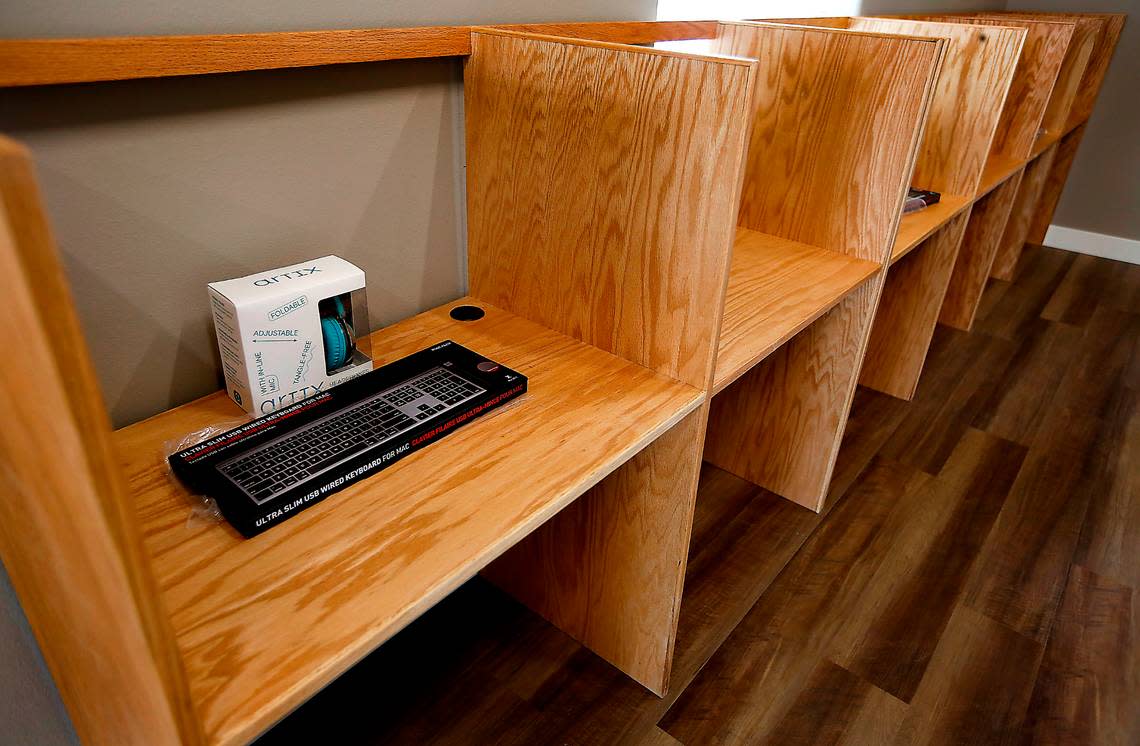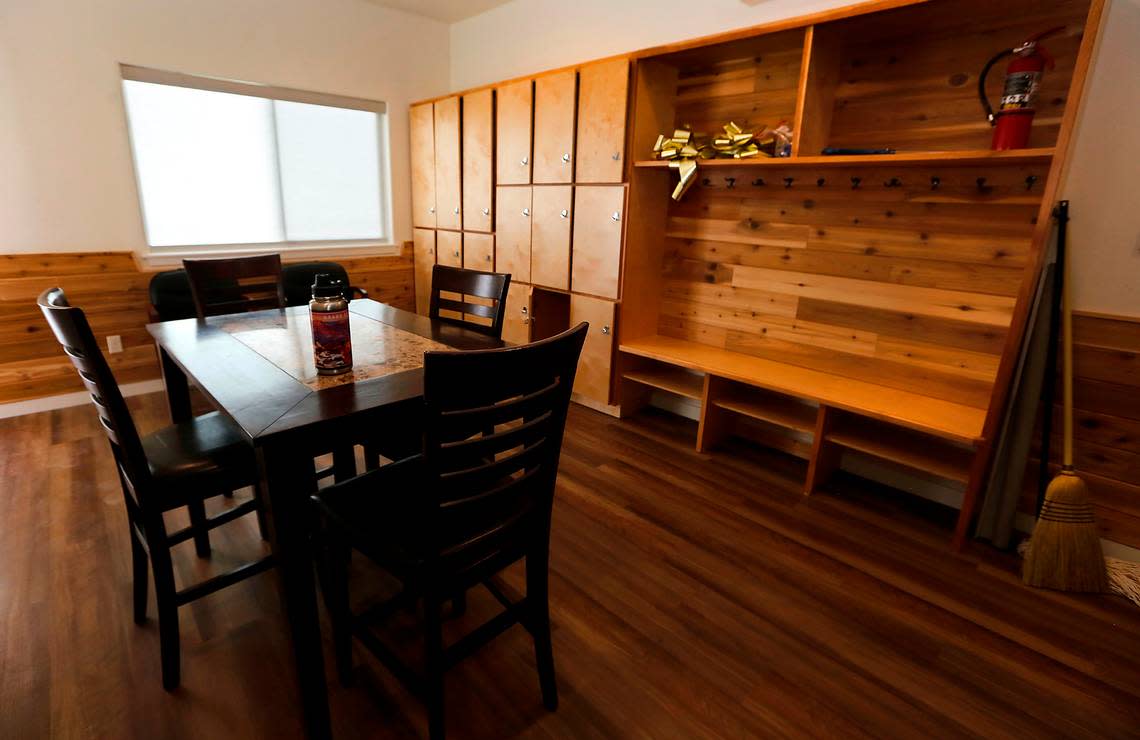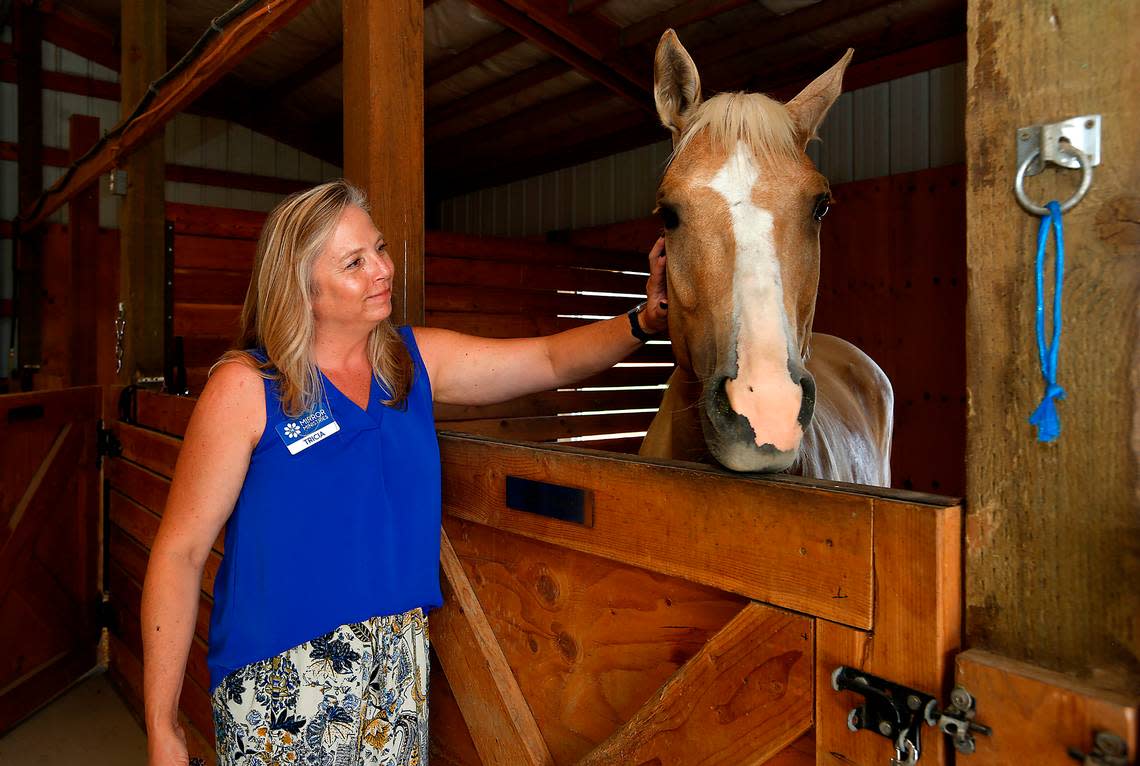1st WA therapy home for sexually trafficked girls is done. But it can’t open yet
Becky Kettle-Gay picked some ripe strawberries from a garden growing outside a rural Franklin County house.
The gardens she planted are full of tomatoes, basil, roses and other plants around what will soon be the first-of-its-kind Washington home for human trafficking survivors.
“They will have some working knowledge of how the fruits and vegetables are grown,” she said. “Nature itself is very healing, and we will just have a lot of opportunities for them to be immersed in that.”
Everything in the home — from the couches to the weighted blankets — are designed to comfort and support the girls.
The faith-based nonprofit Mirror Ministries plans to start with five girls ages 11 to 17, giving them access to gardens, horses and therapy rooms.
Tuesday’s ribbon cutting kicked off the latest effort to raise $500,000 to $700,000 to pay for the first few years of operation.
“This a big deal. This was a long time to get here,” Tricia MacFarlan, the nonprofit’s executive director, told the Herald. “We don’t ever want to be at the point where we’re coming to you and saying, ‘We’re going to have to close our doors. We don’t want to be that failure for these kids. They’ve had too many failures and disconnects all ready.”
Last year, the National Center for Missing and Exploited Children received more than 17,200 reports of child sex trafficking in the United States.

It’s hard to estimate how many children are trafficked in the Tri-Cities on any given day, MacFarlan said. But a 2013 study conduced by New Edge estimated that more than 200 underage girls are trafficked every day in the Tri-Cities area.
Since the start of Mirror Ministries in 2014, the organization has helped more than 450 sex trafficking survivors. On average, they’ve provided case management and therapeutic services to an average of 50 survivors each month.
Esther’s Home
Esther’s Home has been part of a decade-long plan for the organization, which helps sex trafficking survivors with counseling, life skills training and case management.
It now will provide those same services on the 20-acre parcel with a staffed home. The girls will have a chance to learn skills, catch up on school work, along with other therapy all in a relatively isolated spot.

The space will give the girls a chance to heal while they are separated from the situations that led to the abuse and other things that might lead to anxiety.
Organizers have visited similar programs across the globe, as well as getting help from therapists, including the head of the nonprofit’s board.
A classroom of desks is set up in a converted shop. Students will be able to connect with distance learning programs at their school districts. MacFarlan said a tutor will be available to help the girls with immediate questions and to get them connected.
“So whether it’s Pasco or Richland, Kennewick or North Dakota, they’ll be able to get caught up and maybe even advance on their own school’s curriculum,” she said. “So they’re here with us for a year or two and they’re going to empowered.”

In the same building, there are counseling offices where students will meet with therapists to discuss the trauma they have gone through. They’ve also created a gymnasium in the building.
Two horses and a garden are ready for the girls to learn to care for them. They also will be able to take part in art, music and dance therapy.
“There some things that are mandatory like schooling, but we’re going to give as much choice as we can within that mandatory as well,” MacFarlan said. “Choice is important because that’s been so stripped from them, and we want them to be empowered and not vulnerable when they leave us.”
Inside the main home, each girl will have her own bedroom which will have a key code so she’s the only one who can enter it.
She will have a wall in the room that she can decorate however she likes.
Each will learn how to make food and prepare it for the rest of the girls, MacFarlan said.

“We’re learning nutrition. We’re learning to plan. We’re learning new skills and life skills,” she said.
They will also keep in communication with the legal guardian of the girl, whether that is the state or a parent.
Fundraising and the future
MacFarlan said the house has gotten this far with the help of millions in donations, and thousands of volunteer hours. So far, the team has raised about $3.5 million, she said.
“It has been an immense privilege and a blessing to work with so many community donors to raise more than $3 million in funds to support this incredible home,” said Debbie Toner, capital campaign manager for Esther’s Home in a release. “We hope that many more community members will join us for the last phase of our fundraising campaign.”
The money will pay for staffing, programming and equipment. Living at Esther’s Home will be free.

Anyone interested in donating to the project can contact Toner at debbie@mirror-ministries.org or go to givebutter.com/estershome.
You can also donate items by going to the Mirror Ministries website, mirror-ministries.org, and clicking on the Esther’s Home page.
MacFarlan explained that they need new items that are specifically tailored to their program. The list of items is available online at bit.ly/MirrorMinistriesHome.
More project phases are planned and would add additional houses to the property over the next 10 years.
Controversial start
The journey to getting the project approved took more than three years. Since it’s an unusual use for the area, the project needed special approval from Franklin County.
Mirror Ministries previously had a spot picked out for the home, but a coalition of neighbors fought it, and a majority of the Franklin County commissioners opposed it in 2020.
The nonprofit found the new property the following year, and this time had more success in securing a permit.
While they initially had problems with a neighbor, MacFarlan said they have since ironed out the issues.
